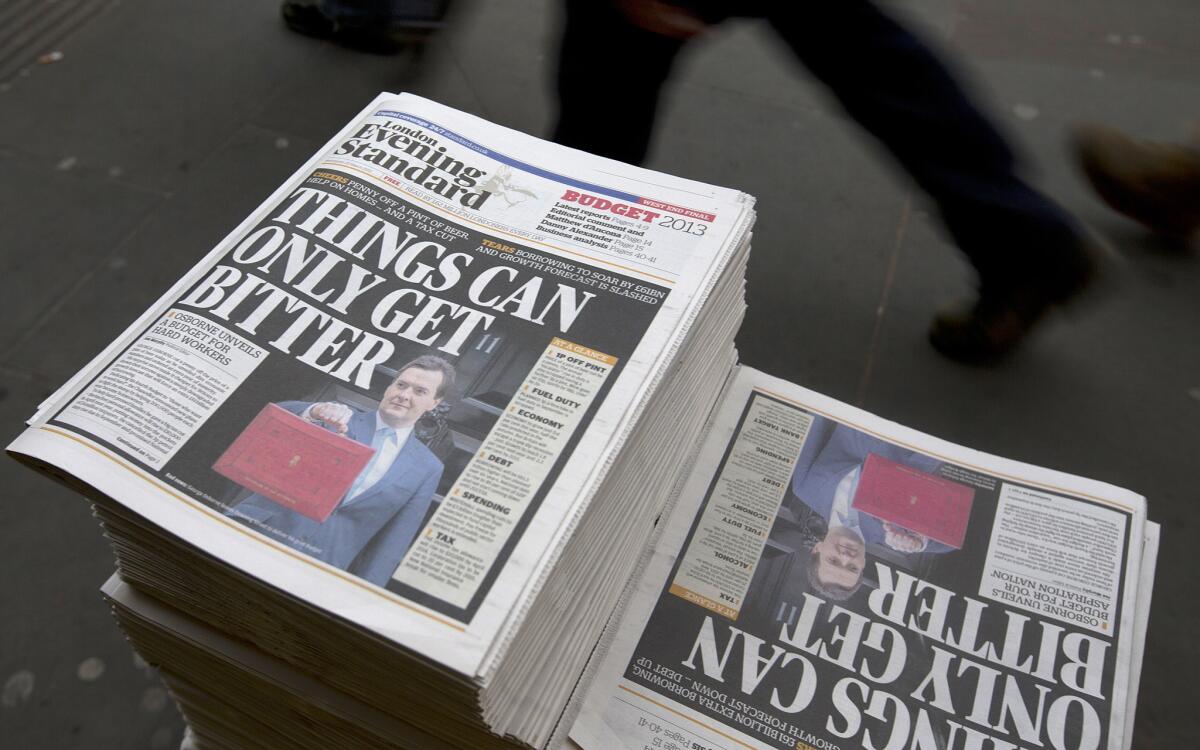Britain’s plan to regulate the press goes too far

- Share via
Britain’s three major political parties have agreed on a new system of regulating newspapers in the aftermath of shocking invasions of privacy by some tabloid journalists. In this case, unanimity doesn’t equal wisdom. The London-based Index on Censorship was right to call the new system a “sad day for press freedom in the U.K.”
The new arrangement will implement recommendations of a prominent British judge who conducted an inquiry into press conduct after a “phone-hacking” scandal in which journalists illegally accessed information from the telephones of celebrities, politicians and a kidnapped girl who was later found dead. The commission had proposed a new regulatory body to oversee Britain’s newspapers; in the end, rather than having Parliament create one by statute, Queen Elizabeth II will issue a charter establishing a “recognition body” that will certify a new regulatory commission. That panel in turn will be able to direct newspapers to publish corrections and impose fines of up to a million pounds for unethical behavior. Newspapers that choose not to take part in the regulatory process will be subject to additional “exemplary” damages if they lose libel or invasion-of-privacy lawsuits.
The use of a royal charter, rather than a statute, doesn’t alter the fact that the government is involving itself in regulation of the press. (Actually, Parliament will be involved in the system because it will legislate terms under which the charter can be revised.) Reporters and editors now must look over their shoulders not only at the new regulatory body but also at politicians who have demonstrated that they are willing to use the power of government to rein in the press. These are the same politicians whom journalists are in the business of covering.
A measure of humility is appropriate when Americans criticize the legal and political systems of other countries. Although Britain lacks a 1st Amendment — or any written constitution — it is dramatically more protective of individual liberties than many societies with elaborate charters of rights. It’s also true that tabloid newspapers in Britain long have engaged in practices that are anathema to journalists in this country (and to many in Britain).
Even so, this new system of regulation interferes with the autonomy journalists need to serve the public. And it’s an overreaction to the phone-hacking scandal, which involved alleged violations of criminal law that already have resulted in arrests.
Last year, Prime Minister David Cameron warned against writing press regulation into the “law of the land.” Yet that is what Britain is about to do, and both the press and the British people will be the worse for it.
More to Read
A cure for the common opinion
Get thought-provoking perspectives with our weekly newsletter.
You may occasionally receive promotional content from the Los Angeles Times.









